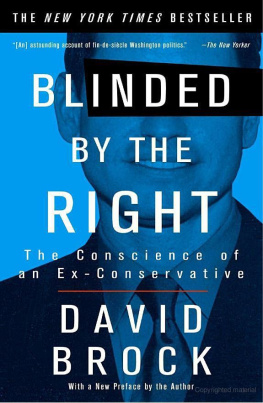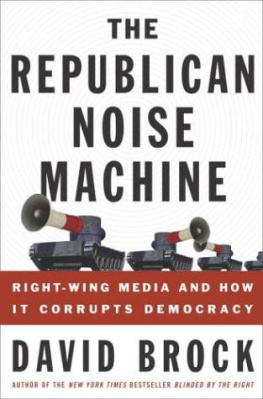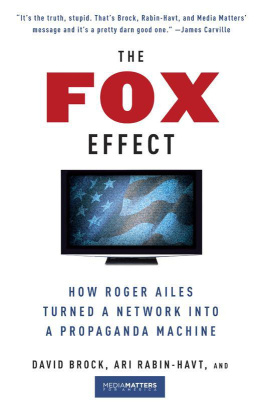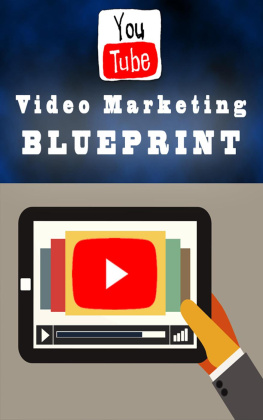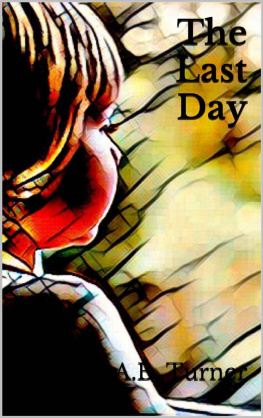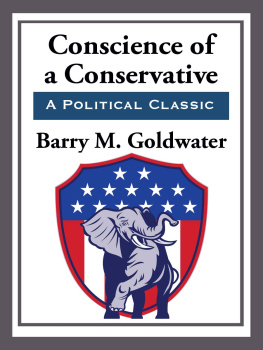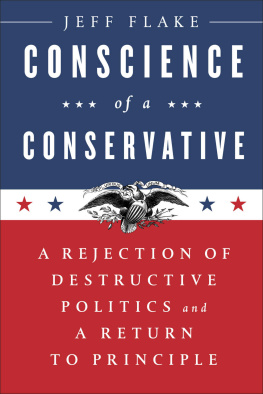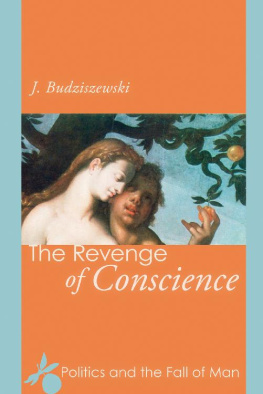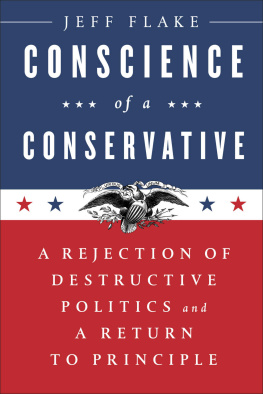David Brock - Blinded by the right: the conscience of an ex-conservative
Here you can read online David Brock - Blinded by the right: the conscience of an ex-conservative full text of the book (entire story) in english for free. Download pdf and epub, get meaning, cover and reviews about this ebook. year: 2003, publisher: Three Rivers Press, genre: Politics. Description of the work, (preface) as well as reviews are available. Best literature library LitArk.com created for fans of good reading and offers a wide selection of genres:
Romance novel
Science fiction
Adventure
Detective
Science
History
Home and family
Prose
Art
Politics
Computer
Non-fiction
Religion
Business
Children
Humor
Choose a favorite category and find really read worthwhile books. Enjoy immersion in the world of imagination, feel the emotions of the characters or learn something new for yourself, make an fascinating discovery.
- Book:Blinded by the right: the conscience of an ex-conservative
- Author:
- Publisher:Three Rivers Press
- Genre:
- Year:2003
- Rating:4 / 5
- Favourites:Add to favourites
- Your mark:
- 80
- 1
- 2
- 3
- 4
- 5
Blinded by the right: the conscience of an ex-conservative: summary, description and annotation
We offer to read an annotation, description, summary or preface (depends on what the author of the book "Blinded by the right: the conscience of an ex-conservative" wrote himself). If you haven't found the necessary information about the book — write in the comments, we will try to find it.
David Brock: author's other books
Who wrote Blinded by the right: the conscience of an ex-conservative? Find out the surname, the name of the author of the book and a list of all author's works by series.
Blinded by the right: the conscience of an ex-conservative — read online for free the complete book (whole text) full work
Below is the text of the book, divided by pages. System saving the place of the last page read, allows you to conveniently read the book "Blinded by the right: the conscience of an ex-conservative" online for free, without having to search again every time where you left off. Put a bookmark, and you can go to the page where you finished reading at any time.
Font size:
Interval:
Bookmark:

BLINDED BY THE RIGHT
THE CONSCIENCE OF AN EX-CONSERVATIVE
DAVID BROCK

Crown Publishers
New York
CONTENTS
To the memory of my father, Raymond F. Brockand for Erin, Kelly, Sean, and Brendan McCracken
ACKNOWLEDGMENTS
I OWE THANKS MANY TIMES OVER to Mark Warren of Esquire for conceiving and editing both Confessions of a Right-Wing Hit Man and The Fire This Time: A Letter to the President, two essays on which this book is based.
My agent, Phillippa Brophy, agreed to represent me at a challenging time, and has done so with gusto. The editor who suggested that I write this book, Jonathan Karp of Random House, provided me with crucial early guidance and support. Doug Pepper of Crown took over for Jon at a critical juncture, and did an exemplary edit. I also owe thanks to Camille Smith, the copy chief at Crown, for the care she took with the manuscript.
The folks at Talk magazineespecially Tina Brown and Susan Lehmandid me a wonderful favor in serializing this book.
I have many friends to thank, in no particular order, for contributing to this project, in one way or another, whether they realized it or not: Becky Borders, Rusty OKelley, Chris Thomson, Joe Conason, Elizabeth Wagley, Barbara Levin, Will Lippincott, Tom Goodwin, Darrin Bodner, Chad Bender, Maer Roshan, Barney Frank and Sergio Pombo, Gretchen Rubin, Stephen Rivers, Sidney Blumenthal, Brian Torres, Aaron Sterling, Michael Dunagan, James Goodwill, Peter Rosenstein, Elizabeth Birch, Christopher McGinness, John Klenert, and Ted Osius.
Neel Lattimore deserves his own sentence. I also owe Lawrence Yanovitch a special debt of gratitude.
Time and again, Ron Haft has gone above and beyond the call of duty as a friend. So, too, has William Grey, without whose love and support I would have never crossed the finish line.
James A. Alefantis makes my life beautiful.
My thanks as well for the love and patience of my familymy mom, Dorothea, my sister, Regina, her husband, Paul McCracken, and their children, Erin, Kelly, Sean, and Brendan.
BLINDED BY THE RIGHT
PROLOGUE
This is a terrible book. It is about lies told and reputations ruined. It is about what the conservative movement did, and what I did, as we plotted in the shadows, disregarded the law, and abused power to win even greater power.
My story is about those familiar corrupting influences of ambition, greed, and ego. It is about how human weakness, lack of confidence, and emotional discomposure can lead to a susceptibility to manipulation for bad ends. It is also about the dangers of zeal and extremism in a political cause, and about how one can be blinded to the ethics of ones own actions.
I came to Washington in 1986 as a conservative rebel from Berkeley, California, and from that moment through the latter part of the 1990s, as the leading right-wing scandal reporter, I was a witness to, and a participant in, all of the scandals that gripped the capital cityIran-Contra, the failed nomination of Robert Bork to the Supreme Court, the Thomas-Hill hearings, Troopergate, Paula Jones, Whitewater, and the secret scheming that led to the impeachment of President Clinton. The conservative culture I thrived in was characterized by corrosive partisanship, visceral hatreds, and unfathomable hypocrisy. I worked for leading institutions of the conservative movementthe Washington Times, the Heritage Foundation, and the American Spectatorwhere I fought on the wrong side of an ideological and cultural war that divided our country and poisoned our politics.
The process of breaking ranks from a tight-knit political movement has been slow and torturous. The break came not in one decisive moment, but in a series of revelations great and small, about the character and actions of those who were my friends, about my own character and actions, and ultimately about the fanatical cause behind it all. There were times when I was not sure I would live through it to tell this story.
In the 1940s and 1950s, ex-Communist intellectuals created a literary genre documenting their break with Communism. In the 1970s and 1980s, so many liberals became conservatives that a new movementneoconservatismwas born. Few have traveled in my direction, from conservatism to liberalism, at least publicly. It is the nature of an ideological defection such as mine to be a lone voice, met by denials or silence from my ex-comrades. Only they and I really know what we did and why we did it.
Though I do not know if these wrongs can ever be righted, in this or any other way, I wrote this book as an act of conscience, to correct the public record on events in which I played a central role and to illuminate for others the dangers that I see in an empowered conservative movement. How a man won a Supreme Court seat that I later learned he should never have won, how a lavishly funded campaign of political terrorism and propaganda disabled a presidencythese are events that may seem to perhaps everyone but me as if they happened a lifetime ago. But the wounds on the body politic from this era are still open. In the course of events that I describe in this book, the bad guys often won and justice was not always done. Many of the same forces, and many of the same players, still exert influencea payback scheme in which old misdeeds are now being rewarded.
Twice as I tried to put this book to press, I was interrupted with official inquiries into the activities of my former associates. Several months ago, Theodore Olson, perhaps the top Republican lawyer in the country and the man who successfully argued the Bush v. Gore case for the Bush forces that won Bush the election, was nominated to be solicitor general of the United States. During his Senate confirmation hearing, Olson denied involvement in the American Spectators Arkansas Project, a $2.4-million dirt-digging operation against the Clintons funded by right-wing billionaire Richard Mellon Scaife. As a four-year veteran of the Spectator, I was contacted by the Judiciary committee, and I described what I knew first-hand about Olsons integral role in the project, contradicting his sworn testimony.
While working on Blinded by the Right for the past three years, I stayed out of the news and used the time to attempt to find a sense of peace, emotional balance, and personal integrity that had eluded me during my dozen years in the right wing. I had no plan or desire to speak against Olsons nomination; I was simply answering questions. But when I did, failed Supreme Court nominee Robert Bork and former independent counsel Kenneth Starr fanned out in the press to vouch for Olsons character, and the virulent right-wing scandal machine, which my own reporting for the Spectator had done much to create back in the early 1990s, went into overdrive to besmirch me. Internet gossip Matt Drudge put up his flashing red sirens and claimed breathlessly that he had obtained a bootlegged copy of this book: Brock Plans Scorched Earth; Book Outlines Reporters Rise and Fall in Washington; Threatens Lawsuit Against Drudge. The trouble with Drudges item was that he didnt have the book.
My last book, a biography of Hillary Rodham Clinton published in 1996, had been widely expected to be as vicious as my first book, my 1993 expos on Anita Hill, The Real Anita Hill. When the Hillary book, The Seduction of Hillary Rodham, turned out not to be vicious, the right wing was enraged. Now, prompted by my statements about Olson, Norah Vincent, who had been an editor at the publishing house that brought out
Next pageFont size:
Interval:
Bookmark:
Similar books «Blinded by the right: the conscience of an ex-conservative»
Look at similar books to Blinded by the right: the conscience of an ex-conservative. We have selected literature similar in name and meaning in the hope of providing readers with more options to find new, interesting, not yet read works.
Discussion, reviews of the book Blinded by the right: the conscience of an ex-conservative and just readers' own opinions. Leave your comments, write what you think about the work, its meaning or the main characters. Specify what exactly you liked and what you didn't like, and why you think so.

